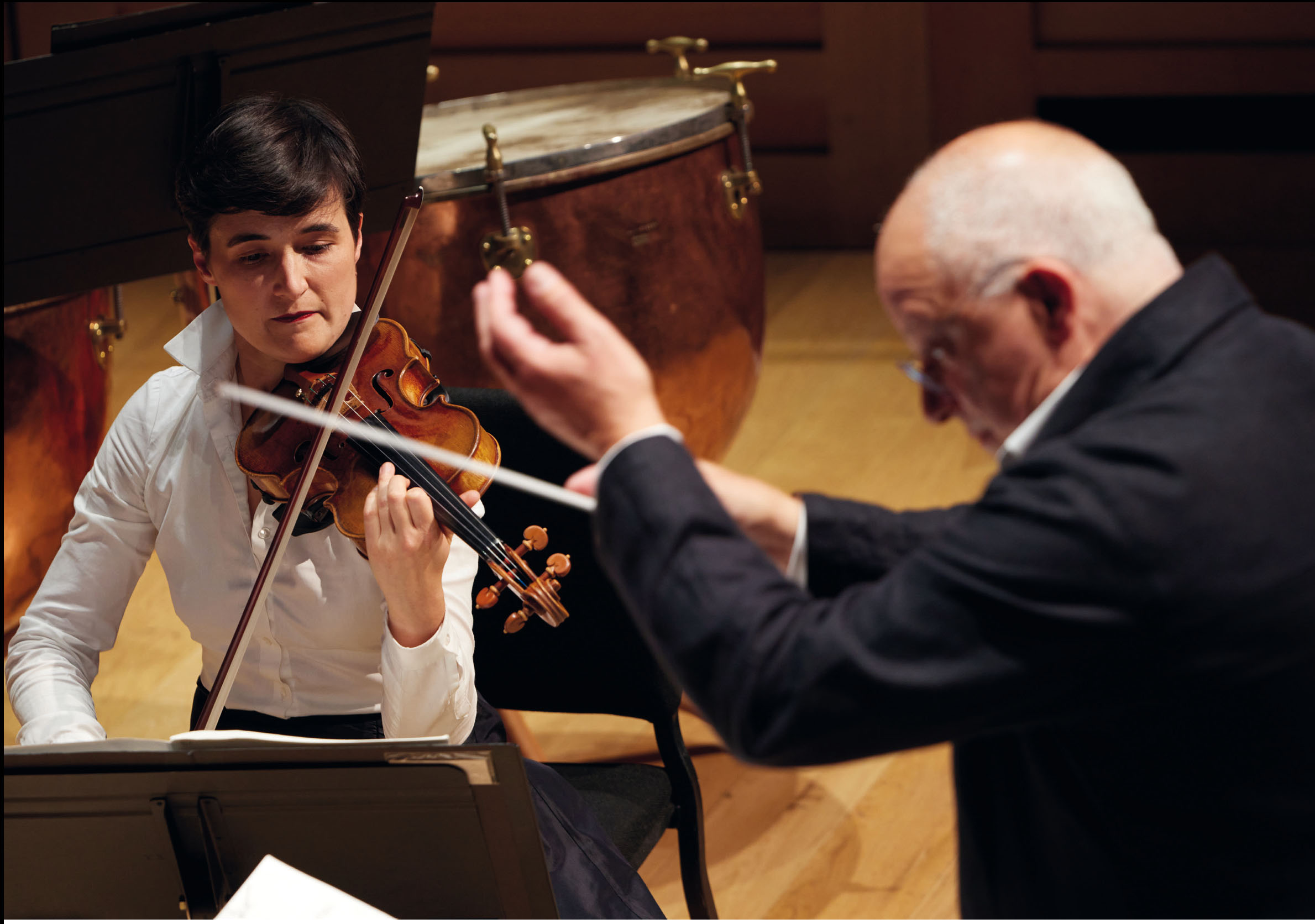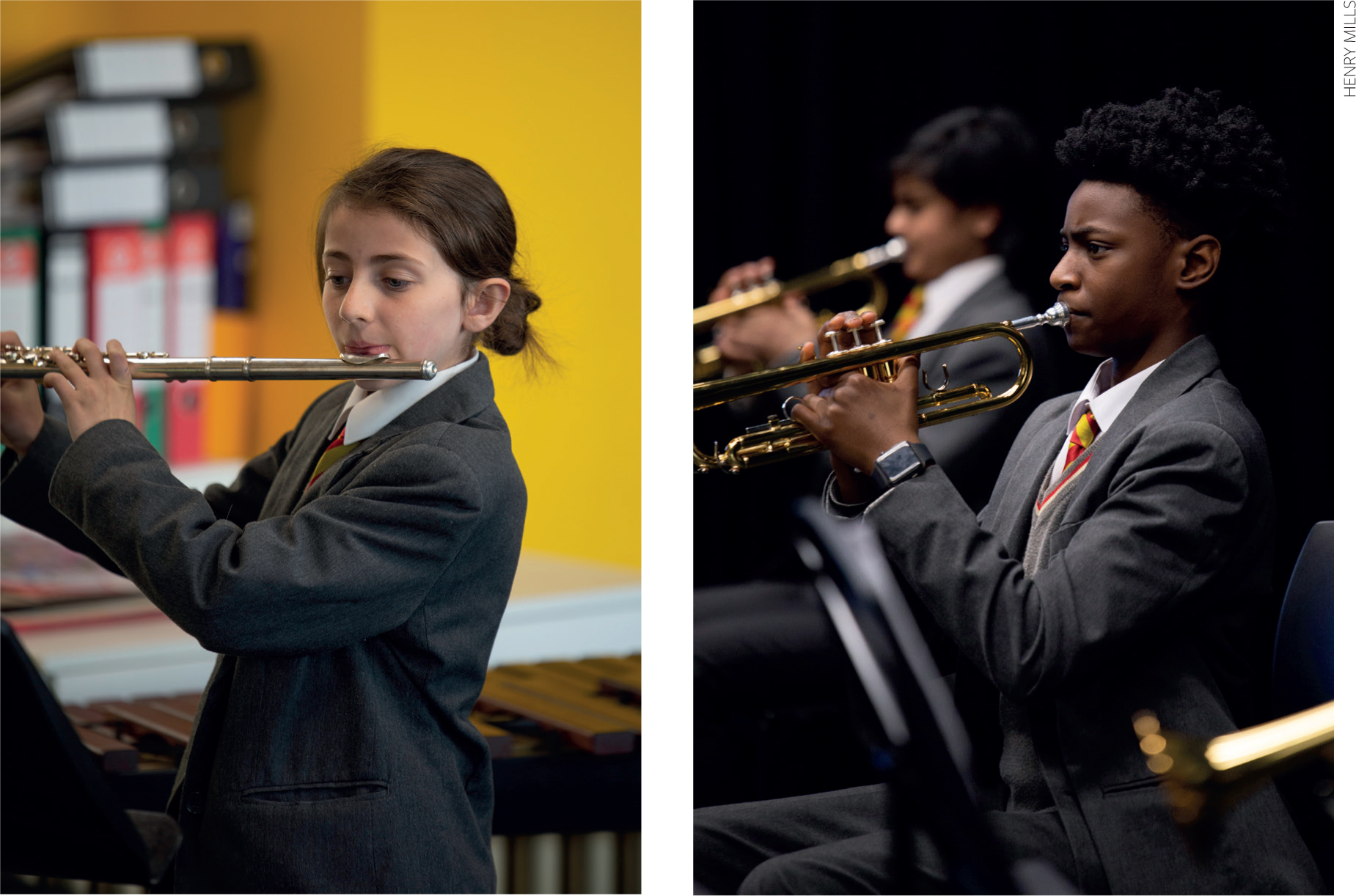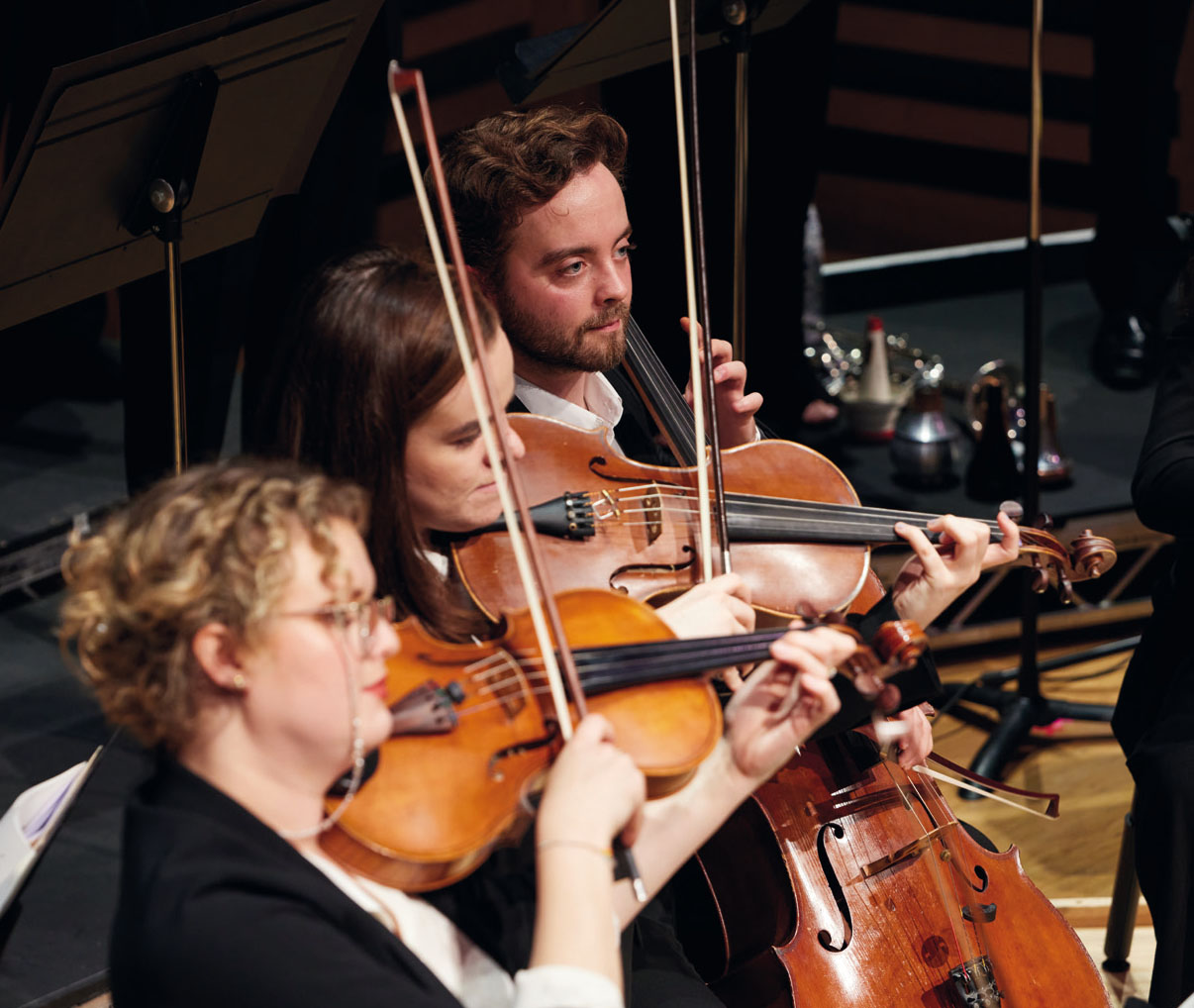
With provision for state music education remaining patchy across the UK, it must have been a welcome surprise for a group of London students to wake up one day to a new school orchestra and training available from professional musicians in the Bath Festival Orchestra (BFO). These students are taking part in the initial phase of Orchestrate at the Bobby Moore Academy, becoming members of the first orchestra in the history of the school. The project sees BFO musicians working weekly and performing monthly in concerts with 20 young players at the East London school.
This is not the BFO's first educational outreach project: after re-launching in 2020, the orchestra worked with 11- to 14-year-olds from diverse communities – many of whom had never played an instrument before – to create an orchestra from scratch. A performing orchestra of 27 musicians, the BFO has an average age of 26 and a mission of making world-class classical music more accessible to as many people as possible by placing the education and training of future audiences at the forefront of what they do.
 Peter Peter Manning conducting the BFO at their most recent Kings Place concert © HENRY MILLS
Peter Peter Manning conducting the BFO at their most recent Kings Place concert © HENRY MILLS
Practical elements
Concertmaster and artistic creator of the BFO, lead violinist Maren Bosma tells me that Orchestrate is a very collaborative project. The BFO is refining the content and structure of the programme and the team hopes to extend to other schools across the country in future years. Peter Manning, artistic director and principal conductor of the BFO, believes that collaborative projects with peer-to-peer learning are great ways to invest in future generations.
He explains: ‘After growing up in the late ‘60s and ‘70s, I saw that local orchestras would bring people together, and that projects like this could be used as a resource for developing a new path for education.’
As part of Orchestrate, representatives from the BFO lead sectional rehearsals for the students. These sessions are in addition to each musician's weekly lesson with teachers at the school, as well as a weekly orchestra rehearsal with their director of performing arts, Ashley Kinnair. The BFO is also undertaking some side-by-side rehearsals where students play together with professional orchestra members, encouraging what Manning calls ‘peer-to-peer collaboration’, even with a possible 10-year age gap. Bosma says the project has given the students a new lease of life with their instruments. ‘I've seen these students just come alive after a long day of school, playing their instruments together,’ she says. ‘They develop a confidence that is quite unique to music making.’

Students practising as part of the Orchestrate project © HENRY MILLS
As many people reading this will know, conducting a school orchestra is no mean feat, as students range from Grade 1 to Grade 4-plus and can have very different needs when it comes to learning and developing. The Orchestrate project's solution to this challenge is to use the differences of the students as a springboard for further collaboration and encourage advanced students to help those who need support. ‘It is just a completely new set of skills they are developing in a very targeted and focused way, and it helps them mentally build this new sense of community and togetherness that is essential to music making. In my opinion, that is the best bit of this programme,’ says Bosma.
Softening nerves
Like any successful project, Orchestrate has not been without its challenges. One of these, Bosma and Manning explain, is students’ nervousness about entering an orchestra setting for the first time, added to in this case by the presence of professional musicians. On overcoming this, Bosma says: ‘I think the most important thing to do when teaching in this kind of setting is to help the students realise that all the effort that they put in is intrinsically enough. What they are doing is important because they are doing it, and it is not dependent on how well they do it. The standard is secondary to what the music making is bringing to their lives.’
Bosma emphasises that the most important thing is that ‘nobody feels intimidated to the point that they don't want to participate anymore’. Usually, in later stages of music education, there is necessarily a big emphasis on how technically skilled a musician is, but Bosma says that this would never be achieved without an individual feeling supported and inspired enough to keep practising. She believes that freedom to explore music without the strain of feeling ‘good enough’ for the orchestra is essential when it comes to motivating young people, with positive encouragement being the driving force of the group. Ironically, she has found that this method has in fact increased the technical ability and sound of the orchestra.

The Bath Festival Orchestra in concert © HENRY MILLS
Returning to the joys of music
Despite this being an extra-curricular activity for the students, the emphasis on the joyful elements of music education is something that Bosma wants to see adopted more widely. ‘I think what makes music education essential,’ she says, ‘is the non-essential nature of music making. I feel that the grade-centric, academic way in which music is often taught in the UK undermines what music is really about.’ Perpetually up for discussion is this balance between providing students with the mental space to enjoy music making and preparing them for an exam or qualification.
Marvin, a Year 10 trumpet player at the Bobby Moore Academy, reinforces Bosma's point. ‘I couldn't play a lot of pieces, but I learnt how to in the orchestra’, he says. ‘It has built my confidence. I was a bit shyer around others when playing, and now I feel much more comfortable.’ Marvin tells me that his favourite time in the Orchestrate project was the first time he tried improvising on the trumpet, and that the biggest lesson he has learnt from this experience is that it is okay to make mistakes.
The bigger picture
Manning suggests that when planning projects such as this, we should not be looking to the next five or 10 years, but rather the next 20 years. ‘At the BFO, we have understood that the problem lies not in getting a short-term result quickly, and in turn getting a ‘soundbite’ effect, but it is the opposite of that,’ he says. ‘I would like to see a more determined support of resources to allow music to go in the direction it deserves in the future. There is a resource gap at the moment,’ he adds. There will always be a finite pot of money, but even distribution and strategic, future-proof implementation of the resources we do have seems fundamental to this future.
Every student will have an individual relationship with music throughout their life, but those lucky enough will also experience this as part of a group. ‘One way or another, we are surrounded by sound,’ says Manning. ‘Even if it is the bleeps and bloops of our electronic devices. Musical sounds are so important – we must never forget that.’








